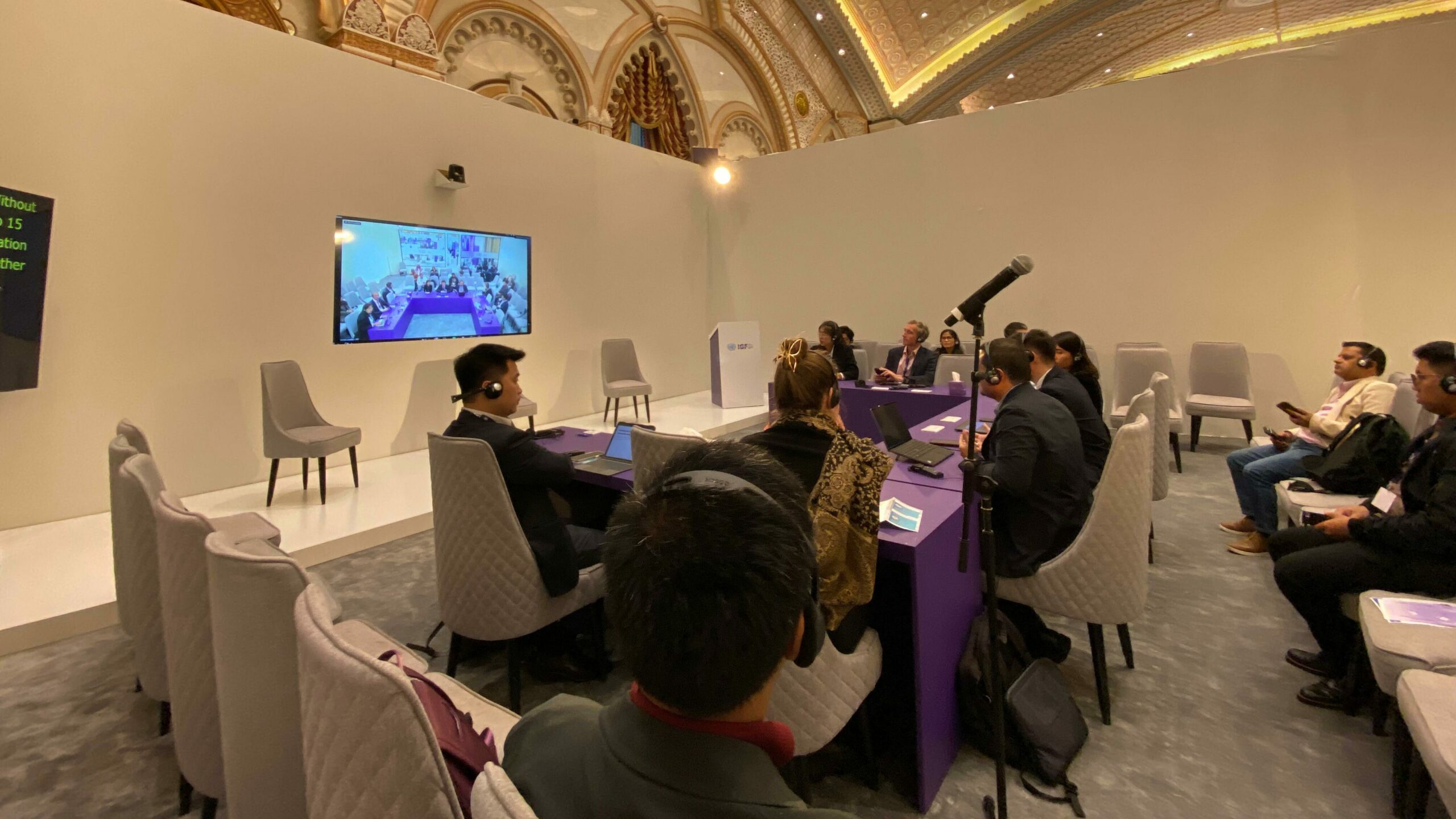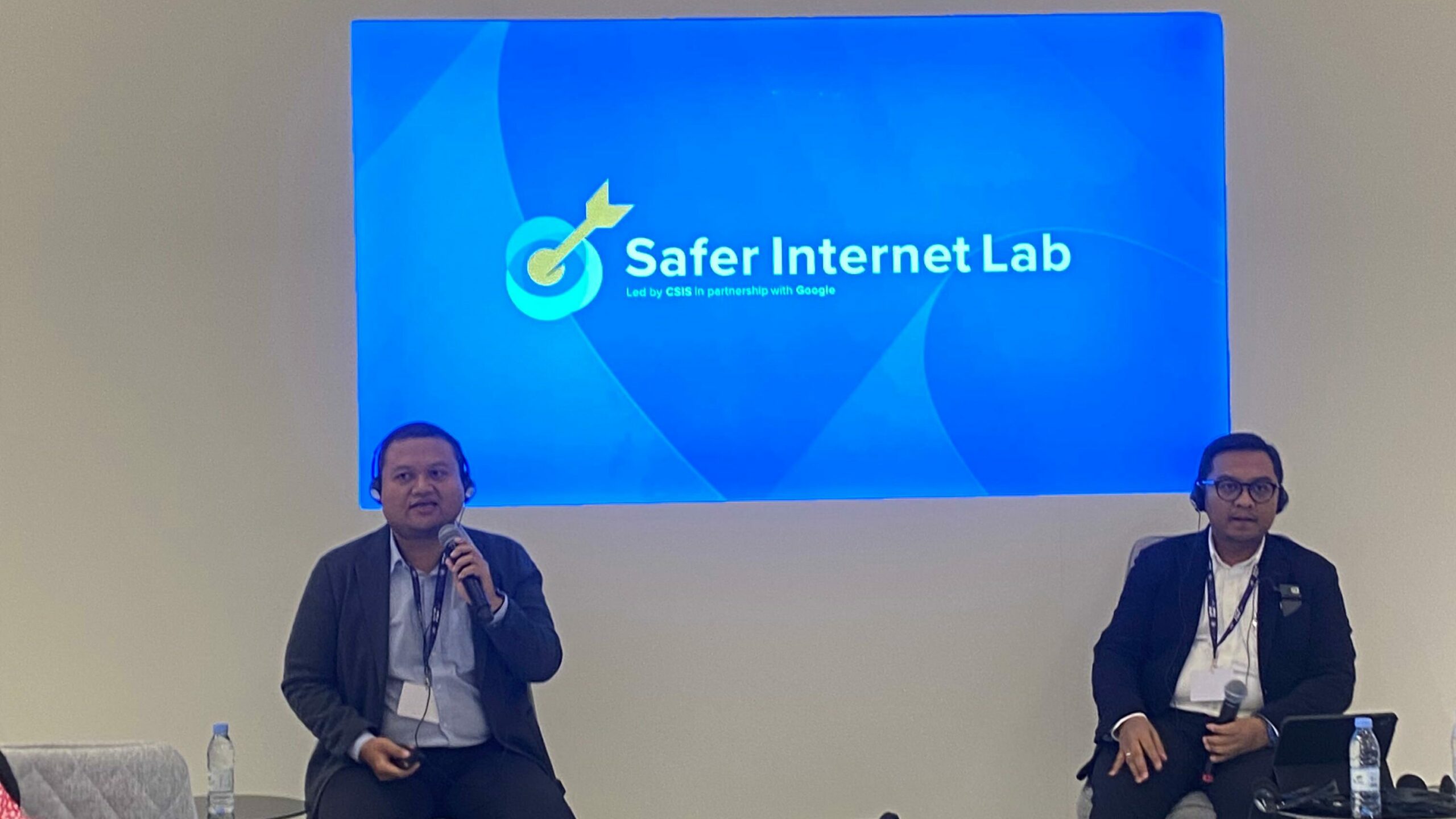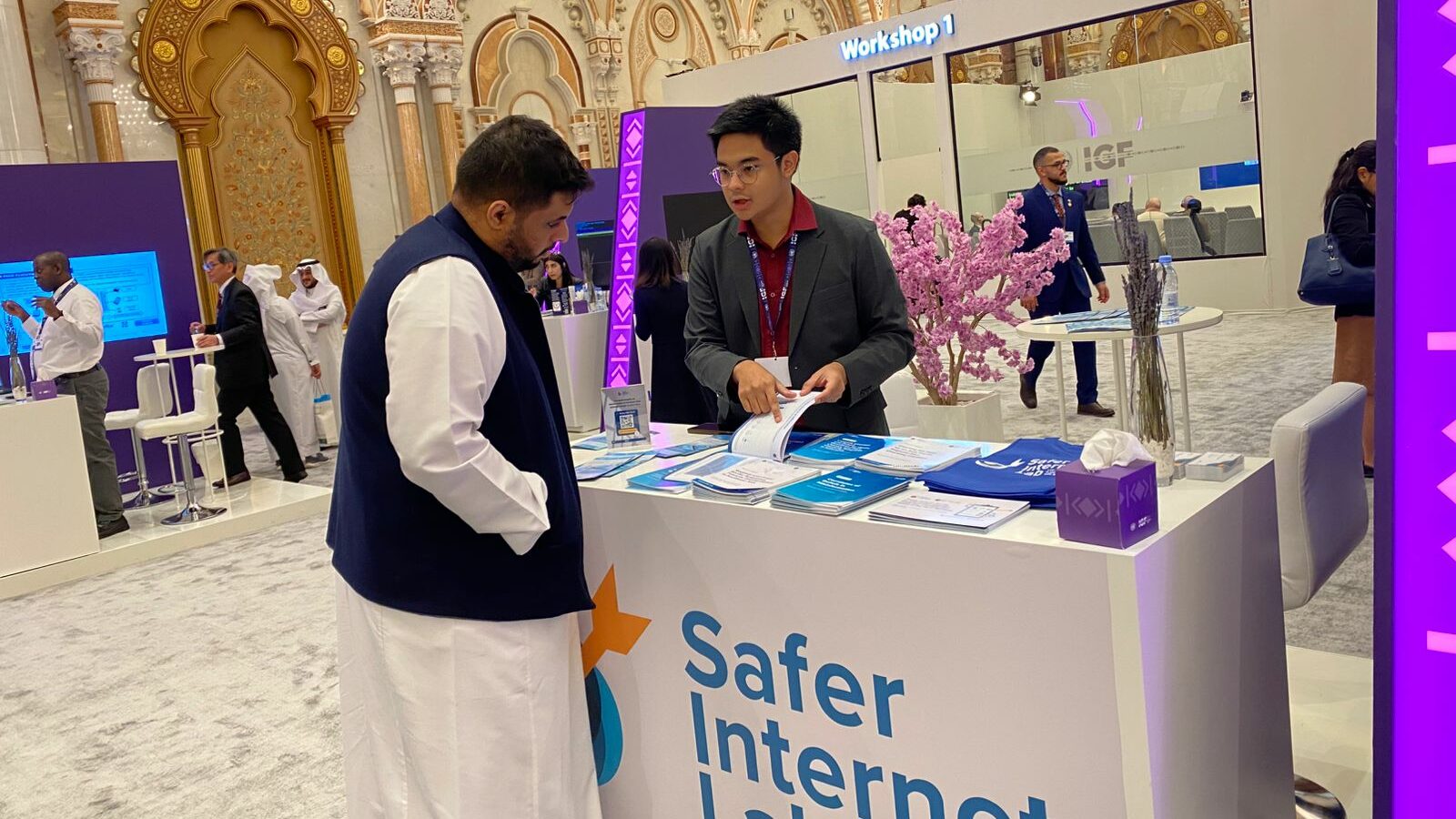SAIL at IGF 2024: Bringing Southeast Asian Perspectives to the Global Stage
After sailing through Taipei for the Asia-Pacific Regional Internet Governance Forum, Safer Internet Lab continues its journey by bringing Southeast Asian perspectives to the 19th Internet Governance Forum (IGF) in Riyadh. This marks our second consecutive year attending the IGF.
The Internet Governance Forum serves as an essential platform for global dialogue, bringing together governments, businesses, civil society, and technical communities to address pressing internet issues. This year’s overarching theme, “Building Our Multistakeholder Digital Future,” features over 300 sessions focused on key digital public policy issues under four subthemes:
- Advancing human rights and inclusion in the digital age.
- Enhancing the digital contribution to peace, development, and sustainability.
- Harnessing innovation and balancing risks in digital space.
- Improving digital governance for the Internet We Want.
This year, Safer Internet Lab participated by organizing sessions and hosting a booth:

Addressing Information Manipulation in Southeast Asia
This session, part of the “Harnessing Innovation and Balancing Risks in Digital Space” subtheme, was held in a theater format on Day 0 of the Internet Governance Forum. It provided participants with valuable insights into the information landscape in Southeast Asia and facilitated brainstorming efforts to tackle foreign information manipulation and interference in the region.
Featuring Pieter Pandie (Researcher, CSIS Indonesia), Fitriani (Senior Analyst, Australia Strategic Policy Institute), Maria Eliza Mendoza (Assistant Professor, Department of Political Science, University of the Philippines Diliman), and Bich Tran (Postdoctoral Fellow, Lee Kuan Yew School of Public Policy, National University of Singapore), and moderated by Beltsazar Krisetya (Researcher, CSIS Indonesia), the session sparked a thought-provoking discussion.
To explore more insights from the session, visit https://sail.ink/FIMIIGF or rewatch it at https://sail.ink/rewatchFIMI.

Safer Internet Lab: A Disinformation Clearing House
This session, part of the “Improving Digital Governance for the Internet We Want” theme, was held in a lightning talk format on the third day of the Internet Governance Forum.
It featured Arya Fernandes (Head of Politics and Social Change, CSIS Indonesia) and Beltsazar Krisetya, our principal researcher, who presented SAIL’s ongoing efforts to address information disorder issues, particularly in Indonesia. Arya also shared key findings from a public survey on information disorder trends in Indonesia and the level of public trust in information.
To learn more about the survey results, stay updated on our website and social media.

IGF Village Booth
We were eager to connect with IGF participants and engage with them, which is why we opened a booth at the event. At our booth, visitors could pick up printed copies of our research publications, learn about our ongoing initiatives, receive exclusive merchandise, and, most importantly, have casual conversations with our team.
We were thrilled to welcome participants from various organizations who visited our booth and engaged in meaningful discussions about internet governance issues.
As the forum came to an end, we reflected on the meaningful discussions and connections made throughout the event. These conversations cannot remain confined to the room—they must inspire continuous collaboration across sectors and regions. Tackling internet governance challenges requires sustained efforts and partnerships that go beyond this forum.
We are hopeful that the ideas exchanged here will pave the way for better preparation in addressing internet issues and achieving effective governance through multistakeholder collaboration.
We look forward to seeing you at the next Internet Governance Forum and continuing this important journey together toward a safer and more inclusive digital future!
